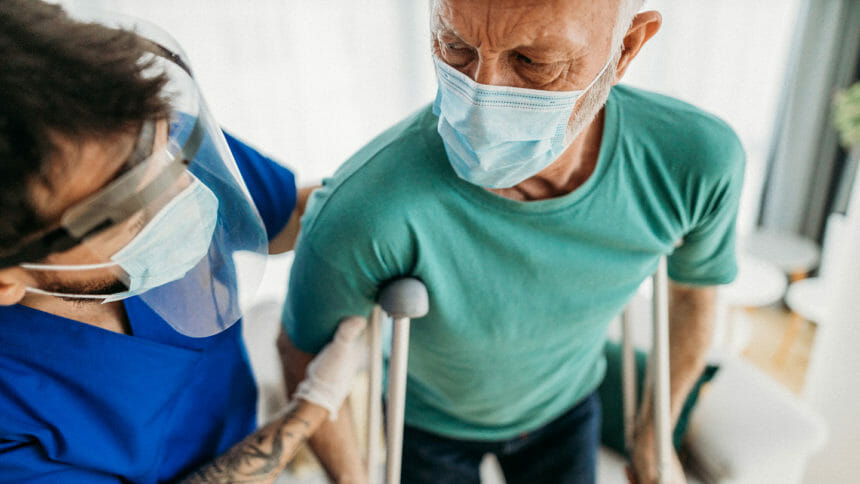
New evidence indicates that older adults taking blood pressure medications have more than double the risk of bone fractures. The findings come from Rutgers Health researchers, who analyzed data from nearly 30,000 residents aged 65 and over in Veterans Health Administration (VA) nursing homes between 2006 and 2019.
The study authors suggested that the increased risk is likely because blood pressure medications cause a drop in blood pressure when the patient first stands up, which impairs balance. Drug interactions and low baseline balance in many nursing home patients may compound risk factors.
“Bone fractures often start nursing home patients on a downward spiral,” said Chintan Dave, academic director of the Rutgers Center for Health Outcomes, Policy and Economics and lead author of the study, in a statement. “Roughly 40 percent of those who fracture a hip die within the next year, so it’s truly alarming to find that a class of medications used by 70 percent of all nursing home residents more than doubles the bone-fracture risk.”
The study found that initiating antihypertensive (blood pressure-lowering) medication was associated with a significantly higher risk of fractures, such as hip, pelvis or arm fractures, within 30 days compared to residents not starting these drugs. Approximately 5.4% of residents who started antihypertensives experienced a fracture within 30 days, versus 2.2% of those not starting the medications.
The fracture risk was even higher for residents with dementia and for those with higher baseline blood pressure readings of 140/80 mmHg or above. Residents not recently taking any blood pressure drugs had a 377% higher fracture risk after starting them.
The study also found an 80% increased risk of severe falls requiring hospitalizations or emergency room visits, and a 69% higher risk of syncope (temporary loss of consciousness) in the 30 days after starting antihypertensive therapy.
While blood pressure medications can provide important cardiovascular benefits, the researchers emphasized the need for caution and close monitoring when initiating these drugs in frail nursing home populations prone to falls and fractures. They recommended a comprehensive assessment of risks and benefits for each patient.





